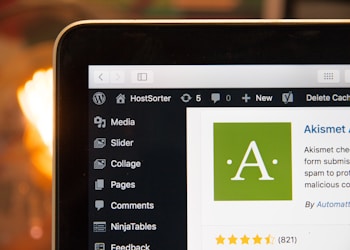When choosing a web host, shared hosting is a great option for small businesses or personal sites. It’s less expensive than other hosting options, and it provides space on a server that is shared by other websites. But before you choose a shared host, there are a few things you need to keep in mind. Here are some tips and tricks to help make the process easier.
Compare Reviews
It’s important to read reviews of web hosts, but you need to know where the reviews are coming from. Some websites allow anyone to post a review without verifying that they were customers. Make sure you find out what type of reviews the site posts before you give them too much weight for shared web hosting services. If you want to look at reviews of providers such as SiteGround, Godaddy and many more, go here. Your web host should have a way for you to check out other sites on their server with free tools. If they don’t offer this service, it could be a sign that your website will suffer in performance because of having to compete with other sites hosted there. This is why it’s important choosing a shared host for performance, not just price.
Choose an Affordable Plan
While you must choose a plan that fits within your budget, it’s also important to consider future needs when choosing a shared hosting plan since updates and extras like email accounts often cost extra. Also, keep in mind any discounts the host might offer based on committing to a longer-term (like 6 months or 1 year) instead of month-to-month. However, if you choose a web host based on price alone, you could be sacrificing security which presents a real threat to your business that might even lead to bankruptcy if your site gets hacked and overloaded with spam or malware which puts it out of commission until you deal with the hack. Choosing a host-based on uptime, speed, and security can all work together for a good overall hosting experience.
Choose a Host with Fast Uptime
If your website is down, visitors won’t be able to find you. You need a host that has good uptime so your site stays up when people visit it. If you have to choose between hosts based on price and performance, choose the one with the higher performance rating even if it’s more expensive because your website’s reputation is worth more than money. Before you commit to a host, set up an account and ping your site from it every few days for a month or two. It should give you a pretty accurate picture of how much load time your site takes. That way, you’ll know how well or poorly their server performs which can affect your website’s rankings with search engines.
Check Out ECommerce Options
With more businesses moving e-commerce, it’s important to choose a web host that offers good e-commerce options. Check out the shopping cart they provide or plan on using since some have advanced features like inventory control and product comparisons. Also, find out if they offer the installation of SSL certificates so you can keep your customers’ sensitive information safe when they check out online.
Bandwidth refers to how much data is transferred into and out of your site per month which includes both images and video files as well as text content. So, if your site experiences explosive growth, you might run up against bandwidth limitations pretty quickly unless you’re willing to pay a higher price for more bandwidth, which is especially degrading for e-commerce sites.
Choose a Host with Good Customer Support
Good customer support is something you need when setting up your website as well as troubleshooting any problems that come up after it’s been launched. So make sure your shared web host offers 24/7 phone or chat support as well as ticket-based email support. If you have any questions about their policies, ask them ahead of time before signing up to avoid surprises down the road. Some web hosting services have servers located around the world so they can provide fast load times for visitors no matter where they are located. If you need your site to be as close as possible to your target audience, choose a host with servers near them since it can affect the performance and loading times of your website.
Choosing a shared hosting plan is an important choice for small business owners since it allows you to keep initial costs low while scaling up as your website’s growth warrants. When choosing the right host, make sure they provide good uptime and speed options that meet your needs now and in the future. Keep in mind that price shouldn’t be the only factor you consider since security is also extremely important so check out what plans have to offer on that front before committing to one. Finally, look for hosts with solid customer support so help can always be at hand if you need any troubleshooting done after your site goes live.










